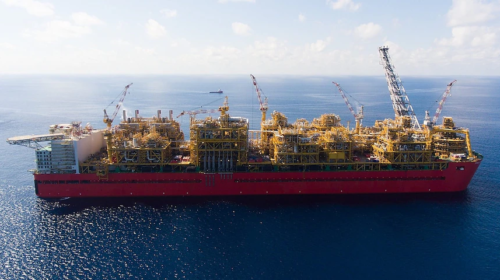When Dutch-Anglo oil giant Shell decided to build a massive floating gas factory known as Prelude in 2011, it was billed as the dawn of a new era for the industry.
Australia was midway through a once-in-a-lifetime $300 billion splurge that would make the country the world’s biggest producer of super-chilled, shipped gas.
Floating gas plants were supposed to be the logical evolution, vacuuming up gas wherever they went and making fortunes for shareholders and taxpayers. But barely a decade later, Prelude has been racked by cost and time blowouts, technical problems, and warnings from the regulator that the project came dangerously close to a catastrophic failure.
What’s more, critics say the facility may never pay a cent in royalties, is unlikely to deliver a molecule of gas to the domestic market, and has sent most of the construction jobs offshore. It is all a far cry from the rhetoric of last decade, when Shell’s then-Australian chairwoman Ann Pickard said Prelude would be “full of Australians” and “generate a tonne of tax revenues”. How did the reality diverge so widely from the rhetoric, and what does the future hold for Shell’s grand plans?
According to Mr Strachan, Prelude was a good idea from Shell’s point of view. Unlike a conventional liquefied natural gas (LNG) plant on land, a floating facility could move from field to field to process the gas. Making the idea even more attractive was the expectation a floating plant could do it all cheaper and quicker than a traditional one.
But whereas the concept was sound, Mr Strachan said the execution had been poor and bedevilled by problems. He said these started with the facility’s construction at a South Korean shipyard, where work was still not finished when the vessel was floated in 2017.
Since then, he said the difficulties had only grown. “Just building a liquefied natural gas plant anywhere is probably the most complex bit of equipment you can build,”
But he said the project had failed to live up to the hype and Australians were bearing the burden of a missed opportunity as well as costs from Prelude’s considerable greenhouse gas emissions. “There’s quite a history of disasters in the resources industry, particularly when companies try new technologies,”
Alex Hillman, a former lobbyist and engineer at Australian oil and gas producer Woodside, agreed. He said direct emissions from Prelude would amount to more than 2 million tonnes of carbon dioxide equivalent, and a further 10 million tonnes if emissions from its customers were included.
All up, he said these amounted to almost twice the emissions from WA’s entire coal-fired power industry. Mr Hillman, now an analyst at activist adviser the Australian Centre for Corporate Responsibility, said the project’s financial and technical problems were obvious enough.
He noted that an initial budget of $US12.6 billion ($17 billion) was rumoured to have shot up by more than 50 per cent, while he claimed it was not producing regularly until 2019 — three years late. On top of this, he said Prelude had barely operated for half the time since it was commissioned and had struggled to run for six months consecutively.
More worryingly for Shell, Mr Hillman suggested, were the safety problems that had affected Prelude in the short time it had been running. He said these culminated in a fire at the facility in December that triggered a loss of power on the huge 488-metre-long vessel. Citing a report by industry watchdog the National Offshore Petroleum Safety and Environment Management Authority (NOPSEMA), Mr Hillman said the plant came perilously close to a calamity that would have endangered 300 workers on board.
Such was the seriousness of the threat, NOPSEMA effectively shut the plant down until the problems were fixed. “At one stage a power outage meant the hull was losing structural integrity and at risk of catastrophic failure,” “At another stage, the toilets stopped working, creating sanitation risks for the crew.
In response to questions, Shell noted NOPSEMA had recently lifted its suspension on Prelude, which resumed shipments last week. A spokeswoman for the company said the resumption only took place once Shell had demonstrated that the facility could “safely recover essential power and associated essential services” in the event of a similar incident. “Restarting the facility only commenced after the investigation into the cause of the incident was completed and findings were actioned,” the spokeswoman.
Mr Barnett, who served as WA’s premier from 2008 until 2017, said he doubted any other major oil and gas companies would follow Shell’s lead in building a major floating LNG plant.
He said the Prelude saga should serve to highlight the importance of developing resources to benefit a country and its taxpayers who ultimately owned them.






